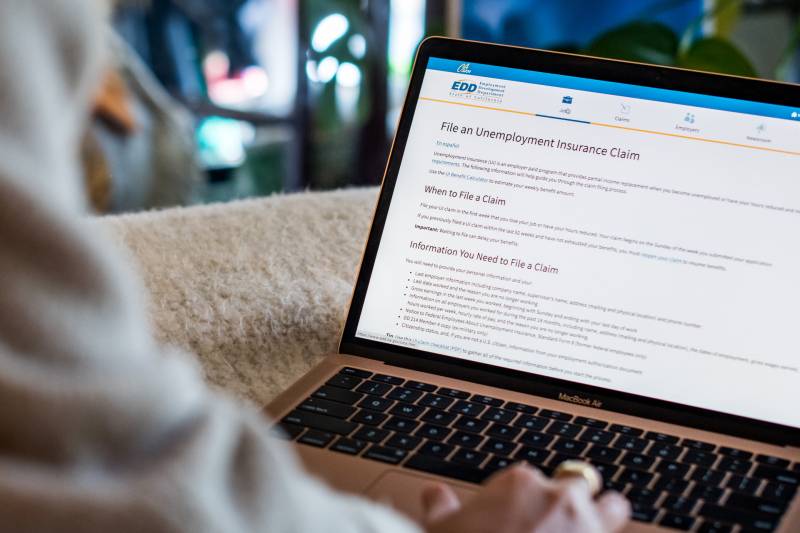The Legislative Analyst’s Office report also revealed that the Employment Development Department mischaracterized the number of people seeking jobless benefits that it was disqualifying or denying in reports to the Legislature.
From the start of the pandemic to June 30, 2021, the department sent weekly dispatches to the Legislature. During that period, the department reported that it had disqualified or denied 705,000 unemployment benefits claims, according to the Legislative Analyst’s Office’s report. But the LAO found that the department disqualified at least 3.4 million during that period.
When asked about this discrepancy, the department said it had interpreted the requirement to report to the Legislature to mean the number of people who were found not to qualify under state and federal eligibility rules, and so it did not report the number of people being disqualified by procedural rules.
“People should get fired for this,” said Jim Patterson, a Republican state assemblymember from Fresno, citing how the Legislature was misled.
The report corroborated what Patterson already sensed, he said — his office has helped about 3,000 constituents who had problems with the department. Through that process, he added, he saw how confounding the communication from the department to unemployed people sometimes is. “They write to constituents as if they’re creating a treatise for a master’s degree in confusion,” Patterson said.
“We’re just seeing the result of a bureaucratic system that wasn’t capable of doing its fundamental mission,” Patterson said.
The LAO’s report makes over a dozen suggestions to remedy the issues it identifies, including recommendations for how to limit improper claim denials, minimize delays and simplify benefits applications.
The Legislature is investing in modernizing the system and bolstering cybersecurity resilience, Assemblymember Cottie Petrie-Norris, a Democrat from Costa Mesa who chairs the Committee on Accountability and Administrative Review, said in a statement. She added that she hoped that would lead to “major advances in how quickly the department can assess threats and resolve claims.”
Making sure unemployment benefits work effectively isn’t just important for workers who have been laid off — it’s important for the whole economy, said Irena Asmundson, a research scholar at the Stanford Institute for Economic Policy Research and former chief economist for California’s Department of Finance.
If people who lose their jobs in an economic downturn don’t have unemployment benefits, she said, then they have to pull back on their spending — making a bad situation worse. So unemployment benefits are meant to act as a stabilizer, giving laid-off workers some money to spend and blunting a downward spiral for the whole economy.
The report “misunderstands EDD’s recent activities to improve the process, and the deeper problems with [unemployment insurance] that go beyond the issues referenced in the report,” said former department director Michael Bernick, who is now special counsel with Duane Morris, a law firm. Bernick, who has also worked as a volunteer helping people who are trying to get benefits over the past two years, agrees that the process is too complex.
Yet many of the anti-fraud measures that the report blames for slowing down payments are required by federal protocols, Bernick wrote in an email.
“The truth is that EDD must balance rapid payout and anti-fraud — a process that has become increasingly difficult with the heightened sophistication of identity theft rings, and the amount of money going through the system,” Bernick said. He added that newer measures to combat identity theft, including the addition of online verification tool ID.me, are on the right path.

